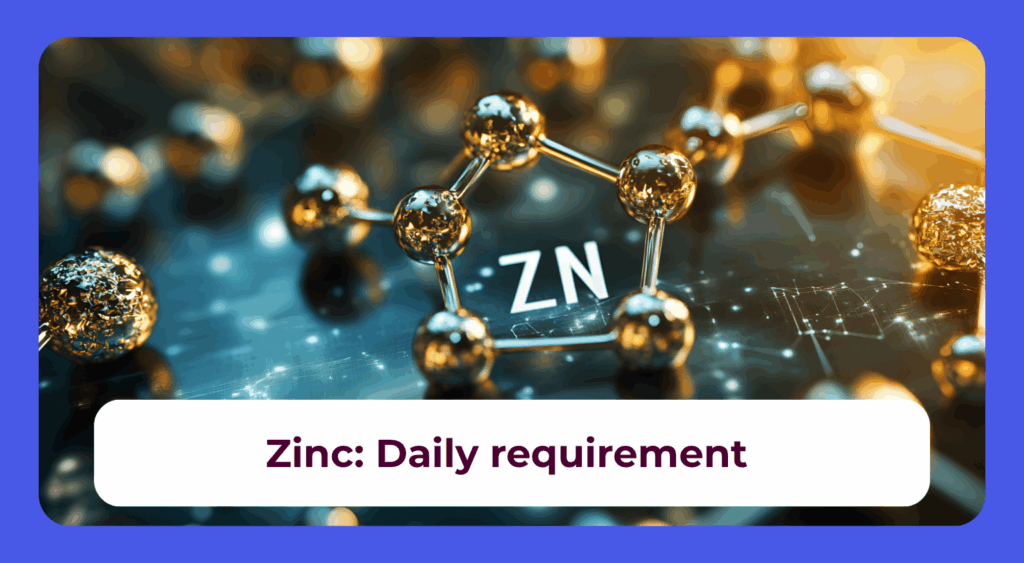Cholesterol is essential for the body. At the same time, unfavorable cholesterol levels can increase the risk of various cardiovascular diseases. It is therefore important to to take early measures to correct them. In addition to other factors, diet also plays a role in this context. Whether and how the polyunsaturated omega-3 fatty acids can help reduce cholesterol has already been investigated in numerous studies.
Omega-3 fatty acids & cholesterol values at a glance
- Cholesterol levels that are too high can promote various diseases of the cardiovascular system.
- Omega-3 fatty acids are unlikely to have a significant impact on cholesterol levels.
- High-dose omega-3 supplements can help significantly reduce blood triglyceride levels.
- Despite having little effect on cholesterol levels, omega-3 fatty acids are important for heart and vascular health.
- Omega-3 supplements should only be taken when necessary and dosed individually.
What cholesterol levels are considered normal?
The ideal cholesterol levels depend on a person’s age and gender. Older people, for example, generally have a slightly higher cholesterol level than younger people. Young men have slightly higher values than women. With increasing age, these differences slowly balance out until the average values of women even exceed those of men.
To avoid health problems, the cholesterol level in adults should not exceed or fall below the following values:
- Total cholesterol should be below 190 mg/dl.1
- The harmful LDL cholesterol should be between 40 and 116 mg/dl, with the ideal value depending on the individual risk of stroke and heart attacks.2
- The vascular-protective HDL cholesterol should be at least 40 mg/dl in men and at least 48 mg/dl in women.3
What foods are high in cholesterol?
Cholesterol levels are only partially influenced by dietary intake. Nevertheless, you should be careful not to ingest too much of it with your food. Cholesterol is found in significant quantities only in animal-based foods.

Foods with a high cholesterol content include, for example:
- Beef
- Pork
- Liver
- Butter
- Cheese
- Cream
- Eggs
What are omega-3 fatty acids?
Omega-3 is a group of polyunsaturated fatty acids. They are essential nutrients. The body is therefore entirely dependent on a regular dietary intake. There are several types of omega-3 fatty acids.
The three most important types for humans are:
- Docosahexaenoic acid (DHA) is particularly found in oily fish. It is an important component of cell membranes and makes up the majority of omega-3 fatty acids in the retina and brain.
- Eicosapentaenoic acid (EPA) is also found in fatty sea fish. This omega-3 fatty acid is important, among other things, as a starting material from which the body forms eicosanoids and DHA.
- Alpha-linolenic acid (ALA) is found in plants. The body can convert this omega-3 fatty acid into docosahexaenoic acid and eicosapentaenoic acid. This is especially relevant for people who don’t eat fish.
What does the body need omega-3 fatty acids for?
Omega-3 fatty acids are essential for life. They have several important functions in the body. Since alpha-linolenic acid must first be converted, these functions mainly apply to docosahexaenoic acid and eicosapentaenoic acid. These two fatty acids help maintain the flexibility of cell membranes.
In addition, omega-3 fatty acids are also important for:
- a normal function of the immune system,
- the growth and development of the brain,
- a normal function of the kidneys,
- the regulation of blood pressure and
- blood clotting.

Which foods contain a lot of omega-3?
Omega-3 fatty acids are found in various foods. Good sources of DHA and EPA are especially fatty fish such as salmon and mackerel. In addition to vegetable oils, nuts and seeds are also good sources of ALA.
Foods with a lot of DHA and EPA include:
- Kipper
- Herring
- Salmon
- Mackerel
- Sardines
- Tuna
Foods with a lot of ALA are, for example:
- Chia oil
- Chia seeds
- Linseed oil
- Linseed
- Rapeseed oil
- Walnuts
Can omega-3 lower cholesterol?
Various studies have investigated whether omega-3 fatty acids can reduce cholesterol levels. The researches show that there is a complex relationship between essential fatty acids and cholesterol levels.
- Omega-3 does not seem to have a major impact on total cholesterol in most cases. However, it can have a positive effect on the different types of cholesterol, at least in some respects.
- Some studies suggest that omega-3 fats may slightly reduce LDL cholesterol. But this is not always the case.
- In part, omega-3 fatty acids have been observed to help increase HDL cholesterol. This is positive, as HDL helps prevent the development of arteriosclerosis.456
Can omega-3 fatty acids increase cholesterol levels?
Some studies suggest that the omega-3 fatty acids EPA and DHA can lead to a slight increase in LDL levels. However, this also applies to HDL levels. In addition, a study published in 2020 by the Texas Cooper Institute with over 9,000 participants concluded that DHA-rich fish oil does not increase LDL.78 Overall, the positive effects on the cardiovascular system outweigh the negative effects.
In addition, a study published in 2020 by the Texas Cooper Institute with over 9,000 participants concluded that DHA-rich fish oil does not increase LDL.9 This could indicate that the increase observed in other studies is only a temporary effect.
How do omega-3 fatty acids affect triglyceride levels?
In addition to the effect of omega-3 fatty acids on cholesterol levels, their effect on triglyceride levels is particularly relevant. Triglycerides, which are blood lipids, are an important source of energy for the body. However, excessively high triglyceride levels are also a risk factor for cardiovascular diseases. It is therefore advisable to counteract them promptly if necessary.
- Consuming at least 4 g of omega-3 fatty acids from eating fish or fortified foods can lead to a reduction in triglycerides by 9 to 26 percent, according to studies.10
- According to the American Heart Association, prescription omega-3 supplements with high doses of EPA and DHA may also be effective in this regard.
- For triglyceride levels between 200 and 499 mg/dl, a reduction of 20 to 30 percent is possible. In the case of very high values of more than 500 mg/dl, triglycerides can even be reduced by over 30 percent.11
Want to Explore the Future of Nutrition?
Discover how genetic testing can provide in-depth insights into vitamin and mineral needs. Partnering with Novogenia opens the door to offering advanced, personalised health recommendations based on genetics. As an expert in nutrigenetics, Novogenia equips businesses with the tools to elevate their health services.
By becoming a Novogenia partner, you’ll gain access to cutting-edge genetic analyses, enabling you to offer your customers highly customised health solutions. With Novogenia’s support, businesses can stand out in the growing field of personalised nutrition, building customer loyalty and expanding service offerings. Take the next step in transforming health services and unlocking the full potential of nutrigenetics.
Which natural substances help maintain normal cholesterol levels?
An individual’s lifestyle has a major influence on cholesterol levels. Often, excessively high levels can therefore be managed through appropriate adjustments in daily life. In this context, besides regular exercise and avoiding obesity, a balanced diet is particularly important.
To naturally lower cholesterol levels, the diet should be rich in fiber and unsaturated fatty acids. In contrast, highly processed foods and cholesterol-rich products that are high in saturated fats should be avoided whenever possible.
Are omega-3 supplements useful?
Depending on your eating habits, taking a dietary supplement may be useful to ensure an adequate omega-3 intake. Whether and in what dose supplementation is necessary should always be determined individually. Very high doses should generally only be taken after consulting a doctor. This is because an excessive intake of omega-3 can cause various side effects.
Possible consequences of an excessive intake include nausea, vomiting, and increased susceptibility to infections. In rare cases, even dangerous cardiac arrhythmias may occur. In addition, due to the blood-thinning effect of omega-3 fatty acids, bleeding may take longer to stop. According to research, this effect appears to occur at doses of 2,000 mg of EPA per day or more.12
Omega-3 Fatty Acids & Cholesterol Levels: A Conclusion
According to current research, omega-3 fatty acids likely have at most moderate effects on HDL and LDL cholesterol levels. However, they can contribute significantly to the overall improvement of the blood lipid profile. Their primary effect is a reduction in triglycerides. In addition, they may also increase HDL cholesterol levels in some cases. This promotes cardiovascular health and reduces the risk of events such as stroke or heart attack.
Important to know
If you are not a healthcare professional and experience symptoms, have existing health conditions, or suspect a deficiency, consult a physician.
- 1 European Society of Cardiology: European Guidelines on cardiovascular disease prevention in clinical practice (version 2012) (Veröffentlichung: 2012). URL: https://academic.oup.com/eurheartj/article/33/13/1635/488083 (zuletzt aufgerufen am: 17.12.2024).
- 2 Deutsche Gesellschaft für Kardiologie – Herz- und Kreislaufforschung e.V.: Diagnostik und Therapie der Dyslipidämien (Veröffentlichung: 2019). URL: https://leitlinien.dgk.org/files/19_2019_pocket_leitlinien_dyslipidaemien_korrigiert.pdf (zuletzt aufgerufen am: 17.12.2024).
- 3 European Society of Cardiology: 2016 ESC/EAS Guidelines for the Management of Dyslipidaemias (Veröffentlichung: 2016). URL: https://academic.oup.com/eurheartj/article/37/39/2999/2414995 (zuletzt aufgerufen am: 24.12.2024).
- 4 Jacqueline K Innes, Philip C Calder: The Differential Effects of Eicosapentaenoic Acid and Docosahexaenoic Acid on Cardiometabolic Risk Factors: A Systematic Review (Veröffentlichung: 2018). URL: https://pmc.ncbi.nlm.nih.gov/articles/PMC5855754/ (zuletzt aufgerufen am: 17.12.2024).
- 5 S AbuMweis et al.: Eicosapentaenoic acid and docosahexaenoic acid containing supplements modulate risk factors for cardiovascular disease: a meta-analysis of randomised placebo-control human clinical trials (Veröffentlichung: 2017). URL: https://pubmed.ncbi.nlm.nih.gov/28675488/ (zuletzt aufgerufen am: 17.12.2024).
- 6 William S Harris et al.: Increases in erythrocyte DHA are not associated with increases in LDL-cholesterol: Cooper center longitudinal study (Veröffentlichung: 2020). URL: https://pubmed.ncbi.nlm.nih.gov/33339757/ (zuletzt aufgerufen am: 17.12.2024).
- 7 S AbuMweis et al.: Eicosapentaenoic acid and docosahexaenoic acid containing supplements modulate risk factors for cardiovascular disease: a meta-analysis of randomised placebo-control human clinical trials (Veröffentlichung: 2017). URL: https://pubmed.ncbi.nlm.nih.gov/28675488/ (zuletzt aufgerufen am: 17.12.2024).
- 8 Jacqueline K Innes, Philip C Calder: The Differential Effects of Eicosapentaenoic Acid and Docosahexaenoic Acid on Cardiometabolic Risk Factors: A Systematic Review (Veröffentlichung: 2018). URL: https://pmc.ncbi.nlm.nih.gov/articles/PMC5855754/ (zuletzt aufgerufen am: 17.12.2024).
- 9 William S Harris et al.: Increases in erythrocyte DHA are not associated with increases in LDL-cholesterol: Cooper center longitudinal study (Veröffentlichung: 2020). URL: https://pubmed.ncbi.nlm.nih.gov/33339757/ (zuletzt aufgerufen am: 17.12.2024).
- 10 Michael A Leslie et al.: A review of the effect of omega-3 polyunsaturated fatty acids on blood triacylglycerol levels in normolipidemic and borderline hyperlipidemic individuals (Veröffentlichung: 2015). URL: https://pmc.ncbi.nlm.nih.gov/articles/PMC4488064/ (zuletzt aufgerufen am: 17.12.2024).
- 11 Ann C. Skulas-Ray, PhD et al.: Omega-3 Fatty Acids for the Management of Hypertriglyceridemia: A Science Advisory From the American Heart Association (Veröffentlichung: 19.08.2019). URL: https://www.ahajournals.org/doi/10.1161/CIR.0000000000000709 (zuletzt aufgerufen am: 17.12.2024).
- 12 Robin Emsley et al.: Safety of the omega-3 fatty acid, eicosapentaenoic acid (EPA) in psychiatric patients: results from a randomized, placebo-controlled trial (Veröffentlichung: 2008). URL: https://pubmed.ncbi.nlm.nih.gov/18962989/ (zuletzt aufgerufen am: 17.12.2024).




